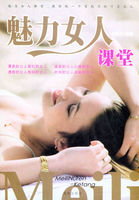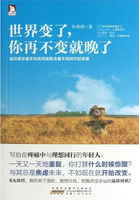Turning first to Scotland, there is no fear, I say, that prohibition will be adopted there: and this from the simple reason that the Scotch do not drink. I have elsewhere alluded to the extraordinary misapprehension that exists in regard to the Scotch people and their sense of humour. I find a similar popular error in regard to the use of whiskey by the Scotch. Because they manufacture the best whiskey in the world, the Scotch, in popular fancy, are often thought to be addicted to the drinking of it. This is purely a delusion. During the whole of two or three pleasant weeks spent in lecturing in Scotland, I never on any occasion saw whiskey made use of as a beverage. I have seen people take it, of course, as a medicine, or as a precaution, or as a wise offset against a rather treacherous climate; but as a beverage, never.
The manner and circumstance of their offering whiskey to a stranger amply illustrates their point of view towards it. Thus at my first lecture in Glasgow where I was to appear before a large and fashionable audience, the chairman said to me in the committee room that he was afraid that there might be a draft on the platform. Here was a serious matter. For a lecturer who has to earn his living by his occupation, a draft on the platform is not a thing to be disregarded. It might kill him. Nor is it altogether safe for the chairman himself, a man already in middle life, to be exposed to a current of cold air. In this case, therefore, the chairman suggested that he thought it might be "prudent"--that was his word, "prudent"--if I should take a small drop of whiskey before encountering the draft. In return I told him that I could not think of his accompanying me to the platform unless he would let me insist on his taking a very reasonable precaution. Whiskey taken on these terms not only seems like a duty but it tastes better.
In the same way I find that in Scotland it is very often necessary to take something to drink on purely meteorological grounds. The weather simply cannot be trusted. A man might find that on "going out into the weather" he is overwhelmed by a heavy fog or an avalanche of snow or a driving storm of rain. In such a case a mere drop of whiskey might save his life. It would be folly not to take it. Again,--"coming in out of the weather" is a thing not to be trifled with. A person coming in unprepared and unprotected might be seized with angina pectoris or appendicitis and die upon the spot. No reasonable person would refuse the simple precaution of taking a small drop immediately after his entry.
I find that, classified altogether, there are seventeen reasons advanced in Scotland for taking whiskey. They run as follows: Reason one, because it is raining; Two, because it is not raining; Three, because you are just going out into the weather; Four, because you have just come in from the weather; Five; no, I forget the ones that come after that. But I remember that reason number seventeen is "because it canna do ye any harm." On the whole, reason seventeen is the best.
Put in other words this means that the Scotch make use of whiskey with dignity and without shame: and they never call it alcohol.
In England the case is different. Already the English are showing the first signs that indicate the possible approach of prohibition.
Already all over England there are weird regulations about the closing hours of the public houses. They open and close according to the varying regulations of the municipality. In some places they open at six in the morning, close down for an hour from nine till ten, open then till noon, shut for ten minutes, and so on; in some places they are open in the morning and closed in the evening; in other places they are open in the evening and closed in the morning. The ancient idea was that a wayside public house was a place of sustenance and comfort, a human need that might be wanted any hour.
It was in the same class with the life boat or the emergency ambulance. Under the old common law the innkeeper must supply meat and drink at any hour. If he was asleep the traveller might wake him.
And in those days meat and drink were regarded in the same light.
Note how great the change is. In modern life in England there is nothing that you dare wake up a man for except gasoline. The mere fact that you need a drink is no longer held to entitle you to break his rest.
In London especially one feels the full force of the "closing"
regulations. The bars open and shut at intervals like daisies blinking at the sun. And like the flowers at evening they close their petals with the darkness. In London they have already adopted the deadly phrases of the prohibitionist, such as "alcohol" and "liquor traffic" and so on: and already the "sale of spirits" stops absolutely at about eleven o'clock at night.
This means that after theatre hours London is a "city of dreadful night." The people from the theatre scuttle to their homes. The lights are extinguished in the windows. The streets darken. Only a belated taxi still moves. At midnight the place is deserted. At 1 A.M., the lingering footfalls echo in the empty street. Here and there a restaurant in a fashionable street makes a poor pretence of keeping open for after theatre suppers. Odd people, the shivering wrecks of theatre parties, are huddled here and there. A gloomy waiter lays a sardine on the table. The guests charge their glasses with Perrier Water, Lithia Water, Citrate of Magnesia, or Bromo Seltzer. They eat the sardine and vanish into the night. Not even Oshkosh, Wisconsin, or Middlebury, Vermont, is quieter than is the night life of London. It may no doubt seem a wise thing to go to bed early.
But it is a terrible thing to go to bed early by Act of Parliament.
All of which means that the people of England are not facing the prohibition question fairly and squarely. If they see no harm in "consuming alcohol" they ought to say so and let their code of regulations reflect the fact. But the "closing" and "regulating"

